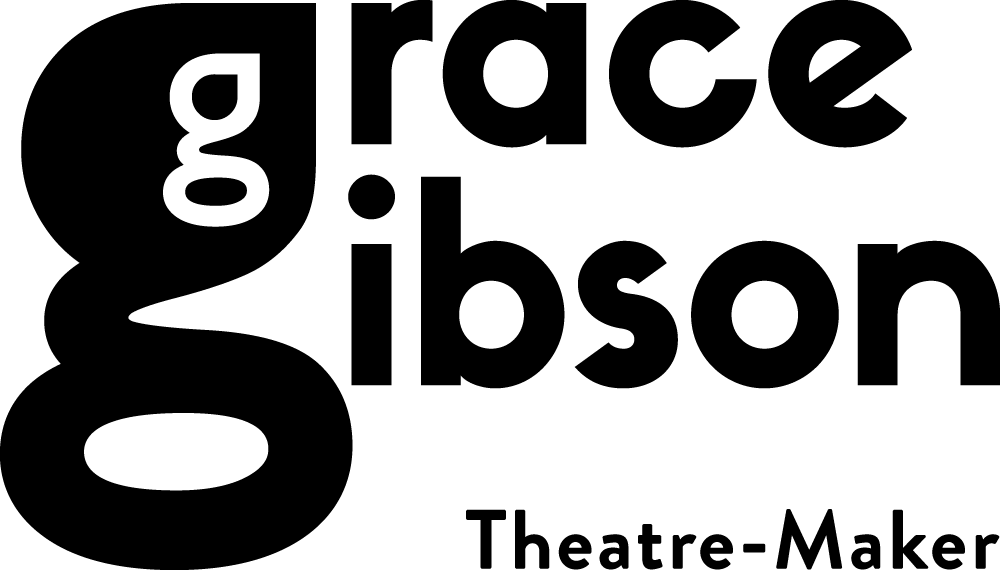Like all freelance theatre-makers, back in March I lost all work very quickly. One job was a project called “Future Voices” with Southwark Playhouse. It saw two writers working with ten young people to write their first ever short plays. They would then be rehearsed by a director (me) and performed by six actors. It was meant to be a quick script in hand performance but was a chance for young people to see their work performed by professionals and it felt important. A couple of months after it was cancelled I was contacted by the theatre, who wanted to finish the project and turn the scripts into films, remotely recorded by actors using their phones and on zoom.
As the plays were created for theatre, we had to think about how we would adapt them into this new format. There were a lot of questions that arose for me about making sense of the space. Some were easier than others, but for scenes that required actors to be in the same room, we had to think about whether audiences would suspend their disbelief. We could have done them as readings, however, it felt important that we brought them to life in a more interesting way that would engage with the young people who wrote and would watch them. (I also loved the idea of taking on the challenge of creating a “DV8 style movement duet” requested by one of the writers in their script). It was also key for me that we didn't streamline their work. In some instances, lines would be repeated, or character choices wouldn’t necessarily fit with the action, but I saw this very much as learning curve for the writers, and that they would gain more from seeing their own work performed, rather than us “correcting” or “fixing” it.
With only a month to record ten scripts, we shot a film a day with days in between to send cameras and props around the U.K, to the now twenty-one actors who were taking part. I knew this job would bring a lot of unknowns and I learnt very quickly that my role as director would require me to shift my process almost entirely.
With no extra time to rehearse (with a couple of exceptions), I would meet actors for the first time over zoom on the day. I place a lot of importance on play and being in your body, so each morning I would put on some music (usually Christine and the Queens) and run a warm up. This not only helped to break the ice but I was aware that this could end up being a very static job for the actors so wanted to at least start the day how I intended to go on.
During the recordings, I became very aware of my role. Due to our lack of time, at moments frustratingly, it became less about creativity and more about patience. I realised my role was about giving reassurance and creating an encouraging environment. The actors so brilliantly threw themselves in and were having to be costume, make up, set and lighting designers and camera operators as well as actors. We all really wanted to get on and do what we are normally paid to do, but due to the nature of the project our time would be determined by other factors such as how long files took to send over. It became important that I kept the energy up as actors figured out what light was making the camera hazy or how many books they needed to add to a pile which their camera was resting on. It also required me to make decisions quickly. Normally within the theatrical process I revel in the unknown and enjoy taking the time to play and find the answers, however here there was no real space for that. It was a balance between getting the “perfect” take and moving on to ensure we get everything filmed. At one point, due to technical difficulties during the morning session, time became so tight that I was directing four different actors at once. I would talk to the actors individually about what the scene required, they would go away and film it, send it over to me and then come back for comments. It was mad, but by this stage quite enjoyable. Instead of fighting time it was about how we can get the most out of it and find methods that meant we could get what we needed.
There were a lot of challenges during this project, but it made me realise how crucial it is to have the right team with the right attitude. Whilst still respecting the writers work, given the situation we found ourselves in with all the unknowns, it was important that we didn't put too much pressure on ourselves and that we did what we could to make it work and that that was enough.
What was once a small rehearsed reading turned into a giant beast of a project, which required a lot more from me as a director. I learnt a lot about myself as a theatre director. It also made the month of July a lot less isolating as an artist and has given new and young writers a unique opportunity to showcase their work on a bigger platform.
“Future Voices” will be available to view for free from Monday 28th September, for two months on Southwark Playhouse’s website.

